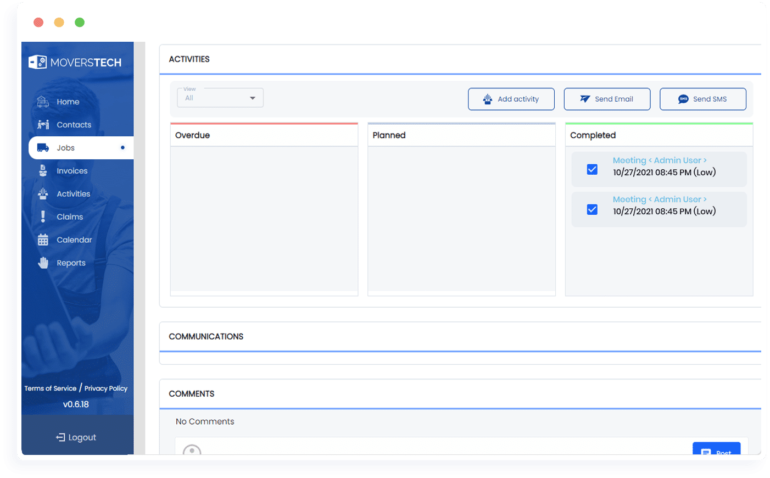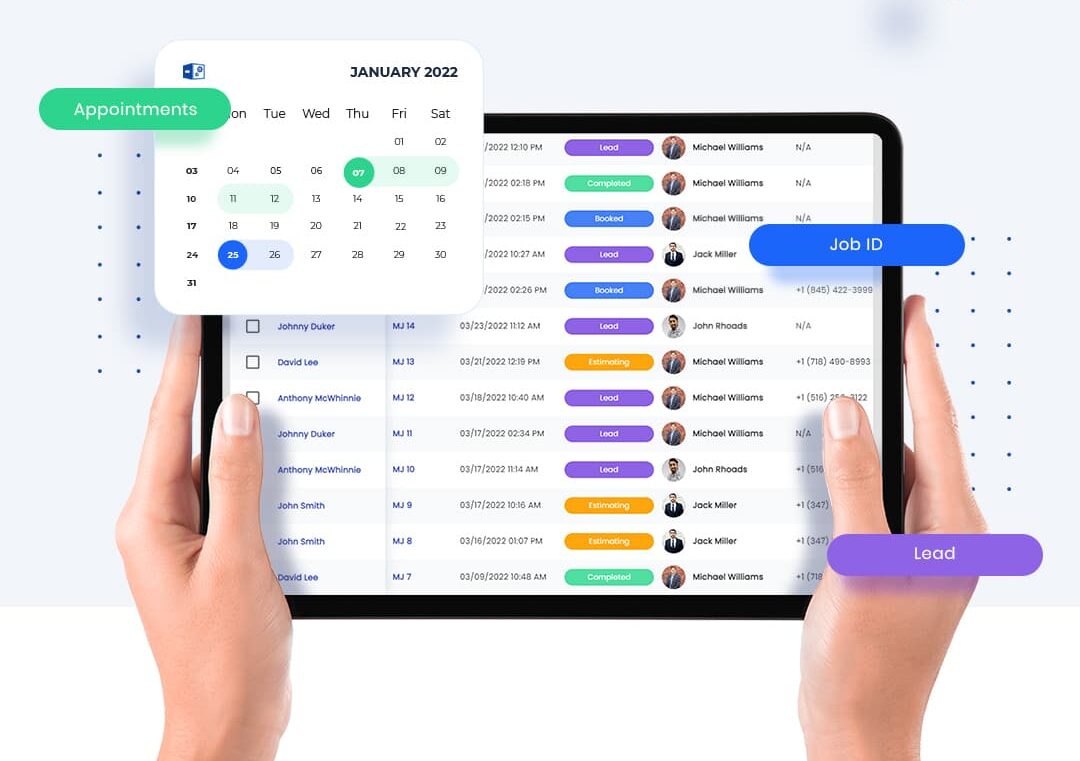No matter the industry, no sale or customer journey concludes with a single interaction. Especially in the moving industry, follow-ups are essential to marketing, sales, and customer satisfaction. However, manual follow-ups take time and effort, often diverting attention from more pressing matters. At MoversTech CRM, we firmly grasp this need. For this reason, today we’d like to explore the benefits of automated follow-up systems for moving companies – and hopefully help you decide whether they’re the best choice for your business.
What’s a follow-up?
First, before discussing the importance of follow-ups for movers, we should clarify the term itself. That’s because there are two rather distinct marketing terms to discuss here.
The first is the sales follow-up. This is the simple practice where a salesperson follows up on a potential customer who hasn’t yet purchased. Perhaps understandably, that’s a vital practice for any salesperson. A Brevet study finds that a staggering 80% of sales require 5 follow-ups when 44% of sales reps give up after just one.
The second is just as crucial as the marketing and customer management follow-up. That is the practice of reengaging with a potential or existing customer after the initial interaction. This is also vital; most audiences and potential customers are not ready to proceed. That’s where follow-ups serve to nudge them along into your sales funnel so their customer journey progresses. In the same way, existing customers often need swift follow-ups to satisfy and foster loyalty.

So who do you follow up on?
In both cases, you can follow up on three distinct types of people.
- “Suspects” who are potential leads and/or within your target marketplace
- “Prospects” who are leads you’ve engaged with and need to nurture
- “Customers” who are existing customers
Each group requires a different approach – and another type of follow-up. Suspects require marketing follow-ups, prospects may be ripe for sales follow-ups, and customers need customer management-related follow-ups.
The benefits of automated follow-up systems for moving companies
Luckily, then, technology has advanced in strides to match the expansion of digital marketing. There’s an automation solution for each process step, touchpoint, and operational management need.
Enter Customer Relationship Management (CRM) solutions and their follow-up automation features. A user-friendly moving CRM can remove all the hassle of tracking, monitoring, and manually seeing follow-ups. You can enjoy all the benefits of timely and effective follow-ups, as we’re here to see today.
#1 Improving the overall customer experience
The first, and likely most notable, general benefit of automated follow-ups is improving the overall customer experience. In the simplest of terms, customer satisfaction hinges on proper, timely, and valuable interactions.
In this sense, any follow-up improves your customers’ experience with your business. Customers value communication, whether that’s a fast quote delivery, a response to an inquiry, or anything in-between. By offering it and keeping your customers satisfied, you’ll also improve your reputation – as the moving industry values word-of-mouth marketing.

#2 Saving time and reducing workload
Second, what’s automation if not an invaluable time saver? All types of automation inherently include this perk, as do the benefits of automated follow-up systems for moving companies.
Here, consider how much of their time the average salesperson spends on tasks that you could automate, according to Hubspot:
- Writing emails – 21%
- Data entry – 17%
- Prospecting/researching leads – 17%
- Attending internal meetings or check-ins – 12%
- Scheduling meetings – 12%
Of course, not all such tasks can be fully automated. However, automating the bulk of them through CRM can save significant time and reduce the workload of your employees. By organizing and prioritizing tasks beyond automation, you’d save valuable time and spend it where it truly matters.
#3 Better documentation of the moving process
Third, automated follow-up systems also help document and organize operations. We’ve outlined how CRM helps manage moving crews before, and here is where this benefit can truly shine.
The average moving company doesn’t tend to handle one move at a time, with ample time in-between activities. Instead, you may often have to manage and keep track of multiple moves simultaneously, which comes with notable challenges. In this regard, an automated follow-up system can also track and document every step of each moving process. With follow-up automation, you can clearly overview each ongoing move from within the same dashboard.

#4 Faster payment processing
Regarding management challenges, payment processing is also a common challenge for the moving industry. Payment processing delays, human error, and other factors can set back a project – and damage your reputation.
Thankfully, automated follow-up systems’ benefits for moving companies extend that far. CRM can lend a helping hand by:
- Accelerating payment processing
- Reducing the room for human error, and minimizing associated risks
- Increasing customer satisfaction through timely payment-related follow-ups
With such benefits, you can rest assured your operations continue without delays – and your customers remain satisfied.
#5 Improving lead management, lead nurturing, and sales
And finally, as outlined in the introduction, follow-ups are essential to marketing and sales. Across both, there are ample signs your moving company needs a CRM – including underperforming lead management and low sales. Thankfully, no matter which types you need most and which groups you prioritize for follow-ups, CRM can help immensely.
Using the same dashboard, CRM allows for improved lead management. By knowing just where each lead is in the sales funnel, you can more easily nurture them through appropriate marketing outreach and follow-ups. Sales-wise, too, CRM lays bare all sales data you can track, analyze, and optimize your sales process.

Conclusion
So, these are our top picks among the benefits of automated follow-up systems for moving companies. CRM is an invaluable tool for the industry, and its follow-up automation capabilities are a key component of its value. If you want to know more about it or our related solutions, don’t hesitate to get in touch with us today.
Stay Informed
Subscribe for industry
news & updates
"*" indicates required fields

